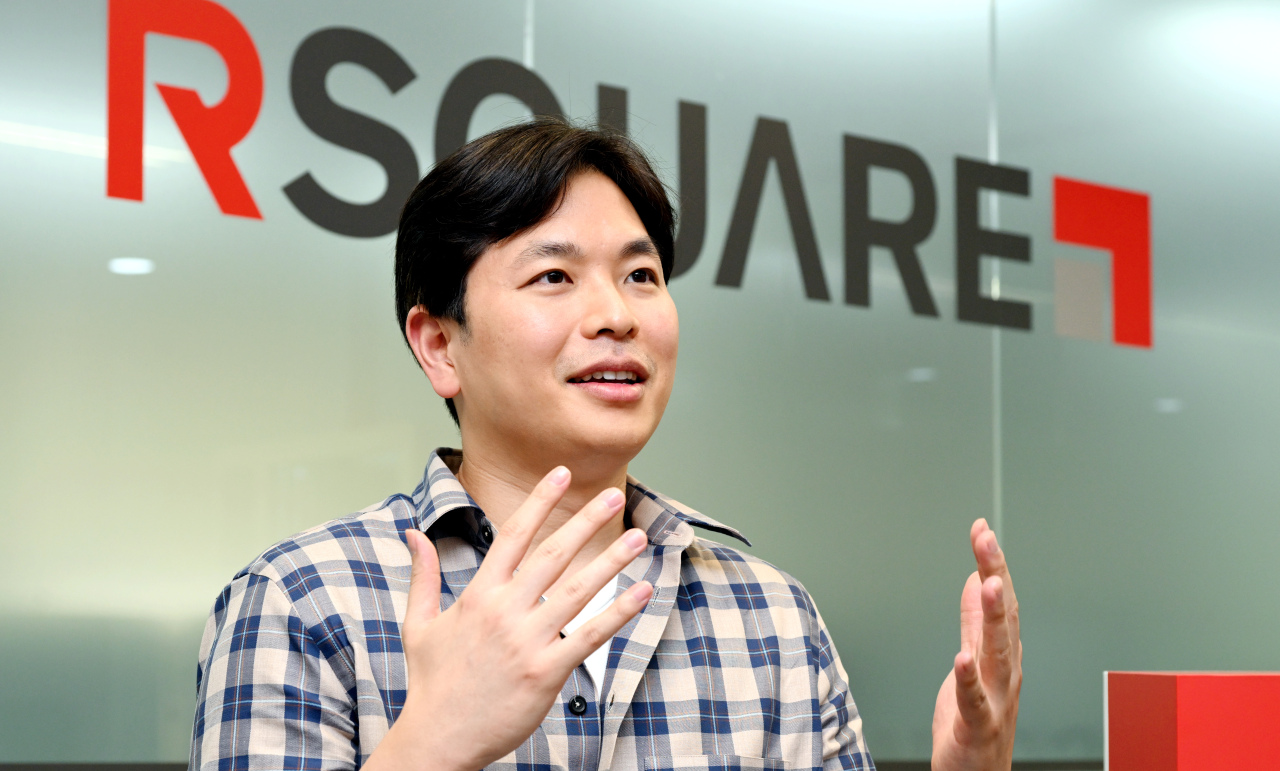 |
Rsquare CEO Lee Johnwoo during an interview with The Korea Herald in Seoul on April 11. (Park Hyun-koo/The Korea Herald) |
The pressure to accelerate the digitalization of industries as a result of the coronavirus has spread to the real estate sector. Using big data, the industry is automating the buying, selling and leasing of homes and office spaces instead of traditional real estate transactions through agencies. But some important information-gathering still has to be done by humans, according to the CEO of a local commercial real estate platform.
“It is difficult for tenants to access necessary information required to lease an office including ‘hard data,’ such as the building owner’s contact, information on facilities and vacancy rate. So as a middleman, we personally visit office buildings, interview the owners and gather that information scattered in the field,” said Rsquare CEO Lee Johnwoo in an interview with The Korea Herald on April 11.
The company’s 80 staffers dedicated to data gathering also compile “soft data,” such as the credibility of building owners -- whether they abide by the lease contract or frequently change lease terms, Lee said.
Although some building owners have been reluctant to share information, Rsquare staff continued to knock on their doors to build rapport, something that fancy AI can’t do, Lee added. “Eventually, it all comes down to human effort.”
As a result, the Rsquare database currently contains information pertaining to 150,000 office buildings in the country. And about 80 percent of its clients renew their commercial leases with the company, including Shinhan Bank, Mirae Asset Life Insurance, and Hi Investment & Securities, the CEO said.
Lee believes its business model can provide better services in Southeast Asian countries where tenants find it even more difficult than in Korea to access information when seeking office space.
Rsquare opened its Vietnamese branch last year and has since compiled data on over 10,000 commercial buildings in Ho Chi Minh City, Hanoi and other major cities.
“We have learned some real estate regulations limiting private transaction of lands and superstitious beliefs such as ‘feng shui,’ or the geometric evaluation of land, that decide what makes a good office location. But with our local staff, we are on track to create strong foothold there,” said Lee, adding that of the 30 employees, 25 are Vietnamese.
Next year, Rsquare plans to enter the Indonesian market. Lee said it is aiming to boost overseas sales to account for 30 percent of the total sales revenue in the near future as well.
Separately, the company has also jumped into the logistics business, offering to connect warehouse owners with clients looking to rent them. Up until now, it has gathered data on over 120,000 logistics centers in Korea.
Based on research data analytics, Rsquare plans to provide more accurate information on warehouse investment for institutional investors, Lee said.
Founded in 2009, Rsquare offers commercial real estate services, ranging from office leasing and brokerage to interior design and property data analysis.
By Byun Hye-jin (
hyejin2@heraldcorp.com)







![[Today’s K-pop] Blackpink’s Jennie, Lisa invited to Coachella as solo acts](http://res.heraldm.com/phpwas/restmb_idxmake.php?idx=644&simg=/content/image/2024/11/21/20241121050099_0.jpg)
